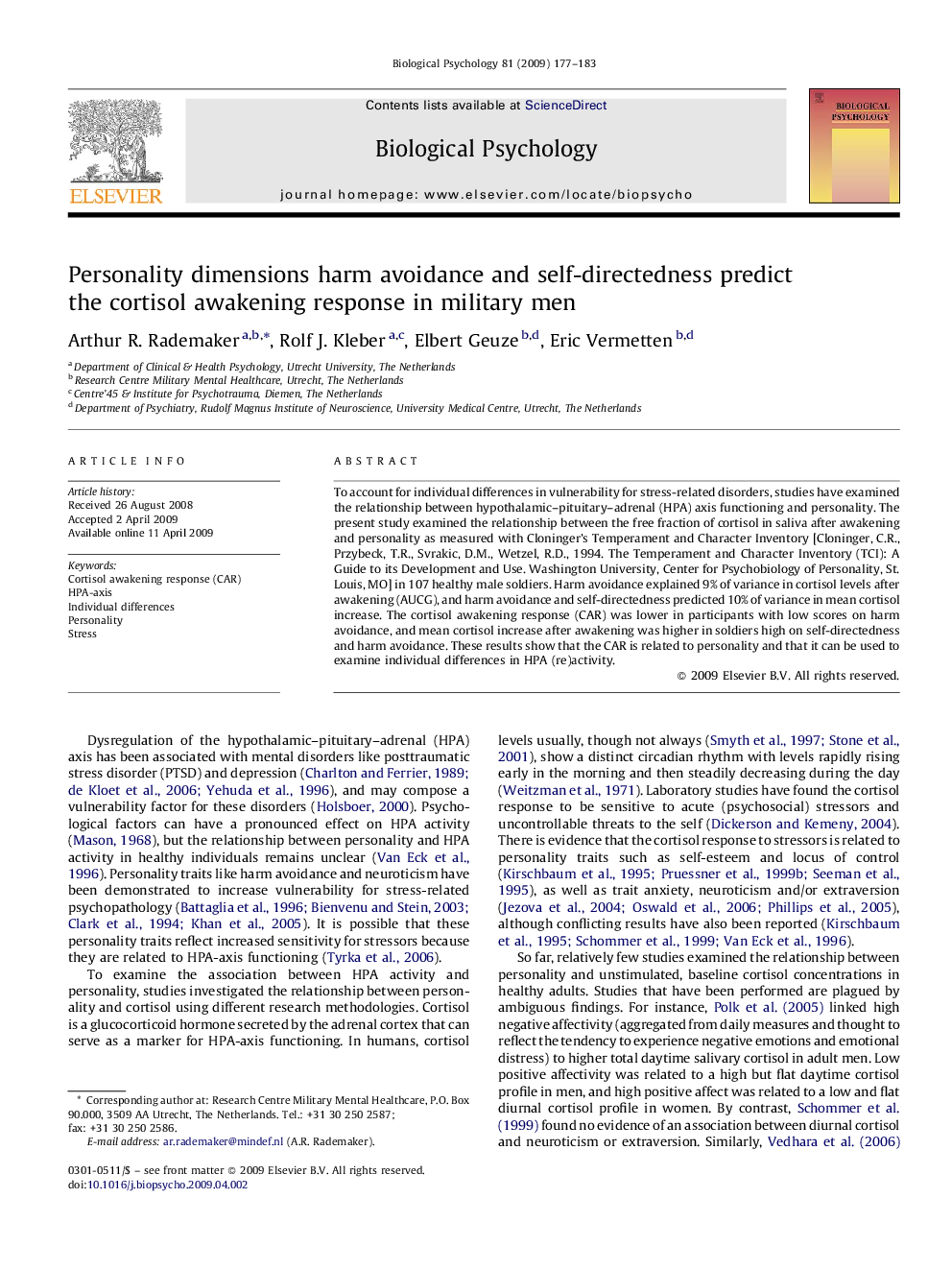| Article ID | Journal | Published Year | Pages | File Type |
|---|---|---|---|---|
| 921485 | Biological Psychology | 2009 | 7 Pages |
To account for individual differences in vulnerability for stress-related disorders, studies have examined the relationship between hypothalamic–pituitary–adrenal (HPA) axis functioning and personality. The present study examined the relationship between the free fraction of cortisol in saliva after awakening and personality as measured with Cloninger's Temperament and Character Inventory [Cloninger, C.R., Przybeck, T.R., Svrakic, D.M., Wetzel, R.D., 1994. The Temperament and Character Inventory (TCI): A Guide to its Development and Use. Washington University, Center for Psychobiology of Personality, St. Louis, MO] in 107 healthy male soldiers. Harm avoidance explained 9% of variance in cortisol levels after awakening (AUCG), and harm avoidance and self-directedness predicted 10% of variance in mean cortisol increase. The cortisol awakening response (CAR) was lower in participants with low scores on harm avoidance, and mean cortisol increase after awakening was higher in soldiers high on self-directedness and harm avoidance. These results show that the CAR is related to personality and that it can be used to examine individual differences in HPA (re)activity.
